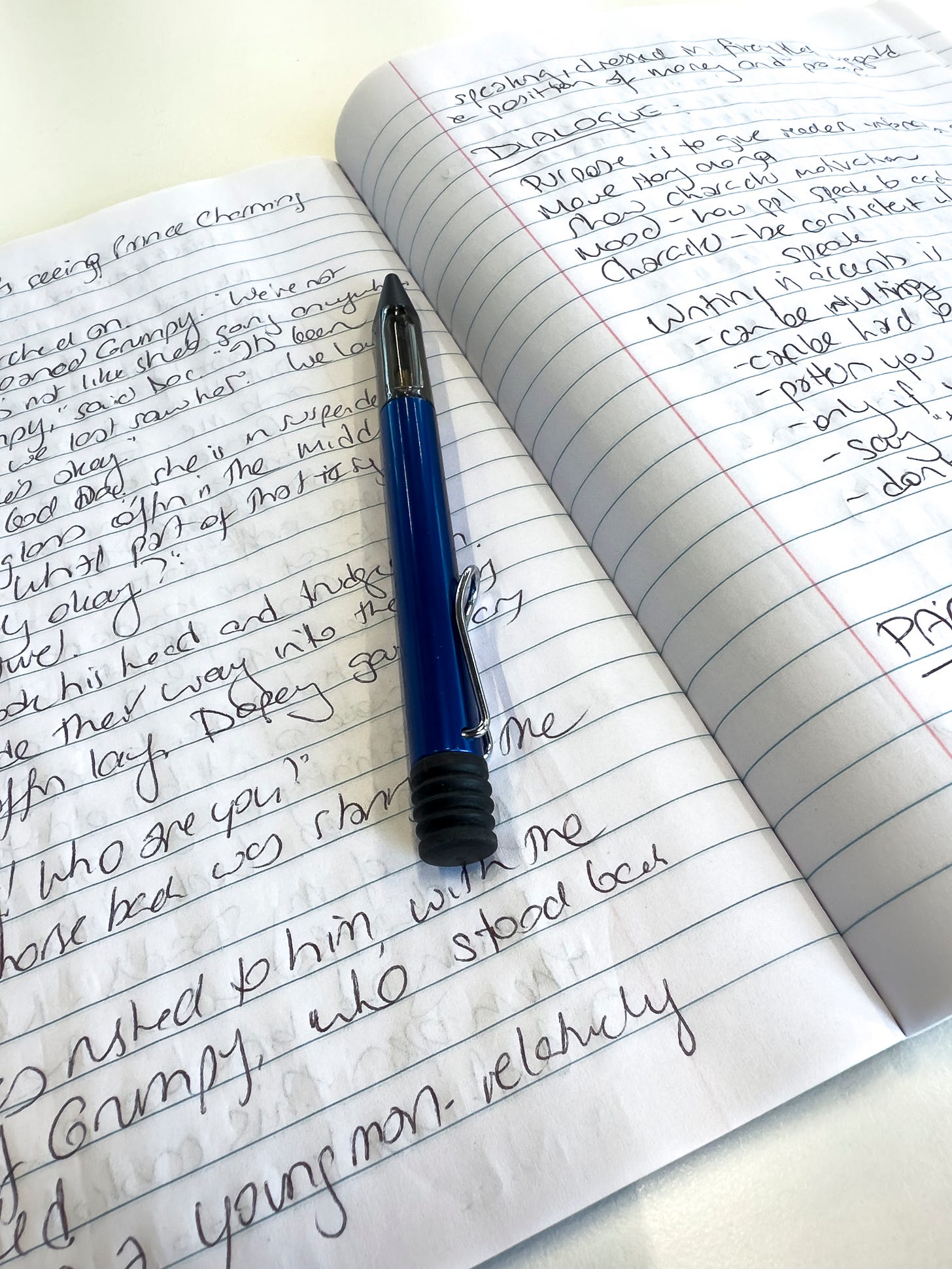Last Saturday I had a wonderful opportunity to go to a writing workshop with Angela Slatter (aka A.G. Slatter). Angela is currently the University of Tasmania’s Hedberg Writer-In-Residence, and part of her residency includes running workshops for local writers.
The workshop
The workshop’s aim was for participants to learn some of the basics of short-story writing and to have dedicated time to put those skills into practice so that at the end of the day, we’d walk out with a first draft of a short story.
Yes, that’s correct. We actually had to write something in the workshop. None of this “let’s sign up for a course, take a lot of notes and do the writing exercises later”. (Because you know that “later”means “never”, don’t you?)
It was fabulous!
Angela gave us a couple of warm-up exercises to get us thinking about character development and point of view. She also touched on dialogue, and I was kind of relieved when one of the other participants said they tend to write stories that are almost all dialogue with no action, because when I sit down to write this is exactly what I do too. Why don’t we just write screenplays?
Indeed.
We followed that with a discussion about the three-act structure, which is a common way of structuring a story that helps you to pace it and make sure you include all the elements at the right time.
You set it up and establish the ‘inciting incident’ or conflict that puts the plot in motion in Act 1. A turning point marks the start of Act 2, where the dramatic tension continues to rise. Another turning point moves the story into Act 3, which is where you continue until the story’s climax. Then you conclude with falling action and the resolution, and you wrap everything up. (Or not.)
If you aren’t familiar with it, google it. There are a lot better explanations than mine out there.
The writing
After an brief explanation of what goes into Act 1, we had (scary bit!) 30 minutes to write that act. Rinse and repeat for Acts 2 and 3.
Yes, we had to actually write. I had to do it, right there. For 90 minutes. None of this “I’ll do it later” bullshit. I was writing!
At one point, I got stuck but I made myself keep writing and this is what emerged.
This is shit.
> I know it’s shit. It’s meant to be shit. Writing shit is the task. So if it’s shit, I have succeeded.
This story is stupid.
> No, Fran. Shut up and get into the back seat. You are not driving the car today.
It’s stupid.
> Whatever. I’m gonna write it anyway.
Why are you wasting your time? You know it’s stupid.
> Because words on the page matter and they count and they lead to better words and if I keep listening to you, I will never write any words and the only words that can ever get turned into a story are the words I’ve written and if I don’t write them they will never be a story. So shut up, Fran. Go away and leave me to write.
It’s stupid.
> I don’t care.
I told her, didn’t I?!
Angela was writing alongside us, so it was a lovely atmosphere where 16 people were sitting quietly, writing with no interruptions or distractions.
How often does anyone get the opportunity to do that?
It was amazing and I’m glad I went.
I didn’t quite leave with a completed first draft but I have the bones of something. I need to write it up, refine it a bit more to get it to the first draft stage, and then do as Angela suggested and put it away for a couple of weeks.
The key will be to actually do that last bit of writing and not let the inner critic talk me out of it . . .
A huge thanks to Angela for her willingness to share her expertise and experience, and to Utas for making it possible.
Three take-aways
Don’t judge yourself against someone else’s work. Instead, ask yourself what you can learn from it.
Be prepared to write badly.
You hide in the woods for a reason.


